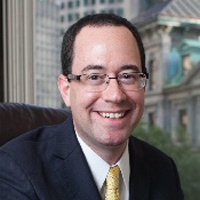North Marshfield White Collar Crime Lawyer, Massachusetts
Sponsored Law Firm
-
 x
x

Click For More Info:
-
Adam P. Beck, M.D., Esq.
25 Marston St Suite 303 Lawrence, MA 01841» view mapAccident & Injury Law Legal Expertise You Can Rely On
By working with lawyers who are also doctors, clients can benefit from advocates who have a deeper understanding of their physical injuries, medical needs, and prognoses.
800-383-8491
Joseph Simons
✓ VERIFIEDCriminal, White Collar Crime, Felony, DUI-DWI
Offering high-quality criminal defense to people in Boston and throughout Massachusetts.
I help people in all walks of life, from doctors to CEOs to blue-collar workers. Whoever you are, if you're facing criminal charges, everything else ... (more)
FREE CONSULTATION
CONTACTJohn J. Falvey
Lawsuit & Dispute, White Collar Crime, Criminal, Personal Injury
Status: In Good Standing Licensed: 41 Years
John J. Falvey
Lawsuit & Dispute, White Collar Crime, Criminal
Status: In Good Standing Licensed: 41 Years
Stephen G. Huggard
Lawsuit & Dispute, White Collar Crime, Business
Status: In Good Standing Licensed: 41 Years
Laura B. Angelini
Litigation, White Collar Crime, Criminal, Consumer Rights
Status: In Good Standing Licensed: 21 Years
William A.D. Wise
Dispute Resolution, White Collar Crime, Corporate Governance
Status: In Good Standing Licensed: 46 Years
Gregory Francis Noonan
Other, Litigation, Lawsuit, White Collar Crime
Status: In Good Standing Licensed: 16 Years
Paul Eliot Summit
Litigation, Lawsuit & Dispute, White Collar Crime, Criminal
Status: In Good Standing Licensed: 47 Years
 Adam Beck Lawrence, MA
Adam Beck Lawrence, MA AboutAdam P. Beck, M.D., Esq.
AboutAdam P. Beck, M.D., Esq. Practice AreasExpertise
Practice AreasExpertise

